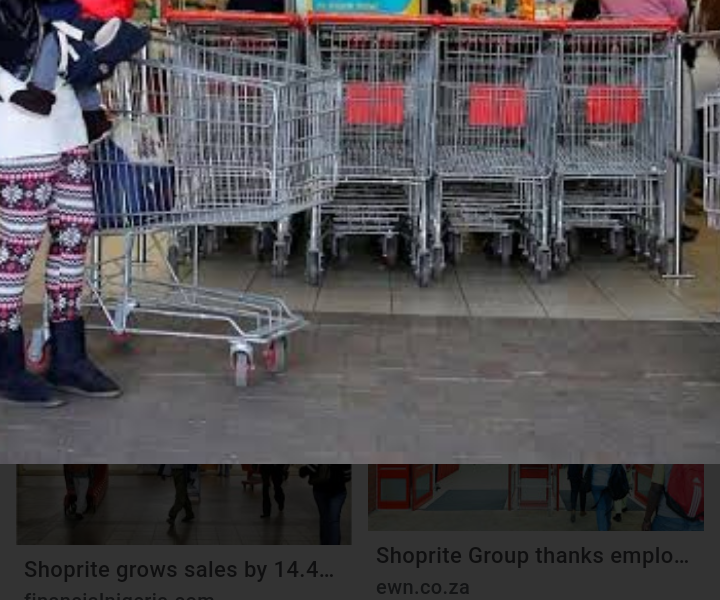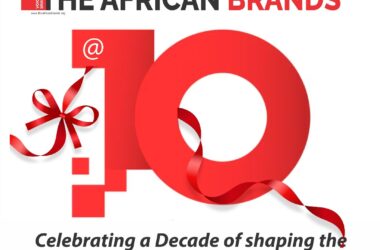It is a known fact that, while good and effective communication help to build a brand, ineffective communication can bring a brand to disrepute.
Misunderstandings can be prevented with good communication. Rumors and bad will can derail an organization. Someone says something, and someone else takes offense. But when there’s open and honest communication, everyone’s on the same page.
Recently, ShopRite, arguably the largest Retail Brand in Africa was in the news because of poor and ineffective communication. The brand released two two press statements within twelve hours.
In an “Operational and Voluntary Trading Update (52 Weeks Ended 28 June 2020)” released on Monday, the company said it has been approached by “various potential investors”.
This operational update, inclusive of voluntary earnings per share (EPS) and headline earnings per share (HEPS) guidance, is more comprehensive than usual for the purpose of providing shareholders and investors with an understanding of how the Group has traded during the COVID-19 pandemic.
Despite difficult circumstances, in a year incorporating the COVID-19 lockdown and accompanying regulations
governing trade, transport and operations, the Group increased total sale of merchandise for the 52 weeks to 28 June 2020 (including the impact of hyperinflation in the prior year) by 6.4% to approximately R156.9 billion. Like-for-like growth for the year was 4.4%.
“the Shoprite Group remained committed to meeting the demands of our customers, whilst focusing on value and
remaining solution oriented. This was evidenced, inter alia, by our digital voucher innovation, ongoing private label evelopment and the conversion of our Checkers Food Services (CFS) business to include a consumer facing offering.” The update disclosed
According to the update, in Nigeria, the Board has decided to initiate a formal process to consider the potential sale of all, or a majority stake, in Retail Supermarkets Nigeria Limited, a subsidiary of Shoprite International Limited. As such, Retail Supermarkets Nigeria Limited may be classified as a discontinued operation when Shoprite reports its results for the year. Any further updates will be provided to the market at the appropriate time
Few hours later, the country Director of Chastex Consult, a consultant to the company, Ini Archibong debunked news report that ShopRite is exiting Nigeria.
In a phone conversation with newsmen, he said: “Shoprite is not leaving Nigeria.” He said they were encouraging local investors to have substantial share in “our business”.
“We are only just giving this opportunity to Nigerian investors to come in and also help drive our expansion plan in Nigeria. So we are not leaving.”
“I have tried to say this as too many people as I can. There should be no panic at all and all of that. There is no truth in that report.”
“We are not leaving, who leaves over a $30 billion investment and close shop? It doesn’t sound right.” He added.
This controversial position of ShopRite triggered several discussion on and off social platforms. For instance, a communications strategist, Chido Wakama took his Facebook page and said; “two stories out of Shoprite in the last 12 hours of 3 August 2020 point to the dangers of weak and ineffective communication. Some fellows have tried to blame the media for a mistake that rests squarely on the heads of the management of Retail Stores Nigeria Limited and the Shoprite Holdings.”
According, “they should get their messaging right. Shoprite issued a statement earlier in the day, the statement declared about their Nigerian operations that in their next filing they would classify Nigeria as “discontinued operations”. The statement in full:
Nigeria – discontinued operations
Following approaches from various potential investors, and in line with our re-evaluation of the Group’s operating model in Nigeria, the Board has decided to initiate a formal process to consider the potential sale of all, or a majority stake, in Retail Supermarkets Nigeria Limited, a subsidiary of Shoprite International Limited. As such, Retail Supermarkets Nigeria Limited may be classified as a discontinued operation when Shoprite reports its results for the year. Any further updates will be provided to the market at the appropriate time.”
He pointed out that, “the plain and ordinary meaning of “discontinued operations” is an exit from the space. I no do again, in pidgin. There can be no other meaning.”
“the statement indicated their intention to divest from their assets in Nigeria in full or partially. Divestment from a business, according to the Oxford Dictionary, is “the action or process of selling off subsidiary business interests or investments.” Investopedia.com provides further details. “Divestment is the process of selling subsidiary assets, investments, or divisions of a company to maximise the value of the parent company.” He added
“one newspaper’s report tried to deflect by blaming other stories that attempted to contextualise the Shoprite statement in the wake of the announced departure of another South African retailer.” He added
He further disclosed that, “Shoprite by itself mismanaged communication of significant development in their enterprise. The saving grace is that they acted correctly soon after. The rule of thumb in the Information Age is that everyone involved must note that they have only a five-hour window to correct the wrong information. Otherwise, it becomes established, and they would need to work harder to fix it.”
Giving his perspective on this issue, the former chairman of Advertising Practitioners Council of Nigeria (APCON), Lolu Akinwumi said; ” I will like to spool back and take our minds to many years ago when we had the Leventis, Kingsway, UTC etc., very vibrant and successful retail outlets, aka supermarkets in Nigeria. They sold everything including the “moinmoin” which I faithfully went to eat at Kingsway. The shops were well stocked and everything worked well. And the point I am coming to is that they were largely managed by Nigerians.”
According to him, “take Kingsway for example. The Merchandise Manager was a Nigerian, a certain Ayo Ajayi who would become the MD/CEO of the UAC Group. I was in Lintas, and he was my Client and I interacted with him very regularly. Being the Merchandise Manager meant he was in charge of what Kingsway stored and sold, an awesome task. He interacted with suppliers, agreed prices and commissions etc. I am sure the same thing happened in the other stores.”
Continuing, the former AAAN president said; “fast forward to the last 15/20 years. Shoprite and others came in. Suddenly South Africa found out its companies could make a lot of money in Nigeria and indeed dominate this market. And they have made money. Plenty of it. However, in the last two years or so, the Nigerian economy slowed down, even as the biggest economy in Africa. But it didn’t slow down our consumption taste. Most times, Shoprite and GAME and SPAR are still brimming; with goods and customers. Cash register still ringing. But now transferring profits out has become an issue because of our exchange rate. A huge profit in Naira would usually lose substantial value when transferred to the Dollar. While a company like Shoprite would be awash with Naira here, the money wouldn’t amount to much when taken out where it’s really needed. This is the point where we are.”
“I have been scanning the environment. Some local supermarkets have been doing very well. Ebeano is one. Hubmart is another. Ebeano started as a corner shop where it couldn’t accommodate more than a few customers at a time; the rest of us stood outside! In the last 10 years its grown and expanded into many branches, easily holding its own with the GAMES, Shoprites, SPARS etc. Its fully Nigerian owned and managed; no expatriate at all. Ditto Hubmart.” He noted
While reacting to how Nigerians can take over the leadership of retail economy in Nigeria, he stated that; “why will Nigerian entrepreneurs fold our hands, and allow foreign supermarket brands dominate such a huge market? Surely it cannot be for the lack of capital; Ebeano and Hubmart have proven this. And at any rate, the money bags spend more on Private Jets, Rolls Royces, apartments in Dubai, Europe and the US than what it would cost to set up a shop like Shoprite.”
Why can’t we have more Ebeanos and Hubmarts? What is the owner of SPAR doing that many experienced Nigerians who managed Kingsway and UTC and Leventis stores cannot do? Where are all the Nigerian billionaires flying private Jets all over the place and changing Rolls Royces every few months? Why can’t one of them, or a group come together, use the experienced services of an Ayo Ajayi to consult for them, and set up chains of these stores? It should be good business, and they will not have to worry about the repatriation of profits like Shoprite.” He added
He stated that, “until we begin to think this way, we may be subjected to manipulations of foreign “investors”, and those whose principal aim and objective is to cart away as much of the profits as possible. When this is not happening, like now, they simply pack their bags and go. Ebeano has nowhere to go. Hubmart is here solid. When more Nigerians begin to see what Indians, South Africans, Chinese etc. see, and are prepared to be serious entrepreneurs, then things will begin to change in this country.”
“we are even prepared to forgive those who steal money, if they will at least invest here to create employment and wealth, and not simply buying PJs and transferring the monies to London and Dubai to fund the property markets. Plus, we will be in a better position to call the bluffs of those who will be quiet when they make mega profits, but become crybabies when things slip.” He said









